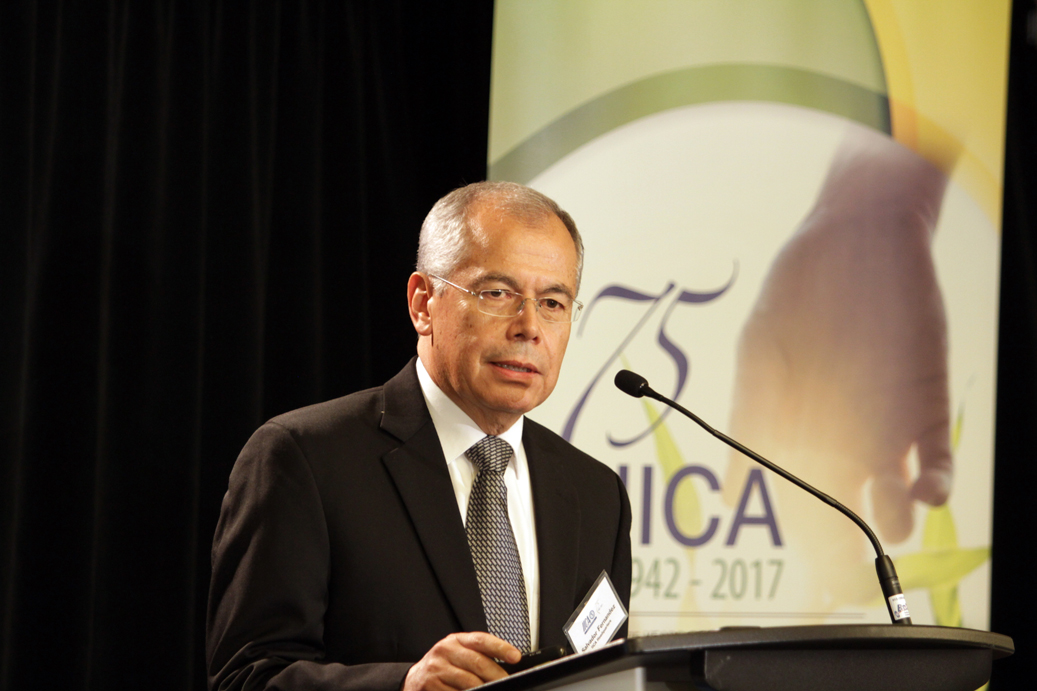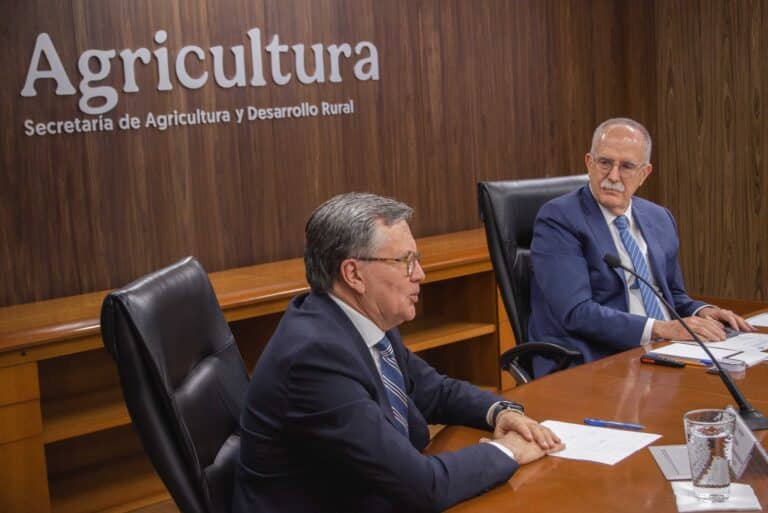Effective knowledge transfer, improved practices and agricultural innovation could increase productivity in the Americas to better feed the growing global population.
San José, 19 June 2017 (IICA). The Americas, including Latin America, have tremendous potential to increase the agricultural productivity needed to feed the world, as stated by authorities of the Inter-American Institute for Cooperation on Agriculture (IICA) during its accountability seminar held in Ottawa, Canada.

“Shifting the Paradigm: Agricultural Productivity for Economic Growth in the Americas” was the central topic of the Annual Accountability Seminar recently organized by the IICA Delegation in Canada.
The Americas have great potential to become a leading food producer, due to the availability of arable land, fresh water and natural resources. However, the region must significantly increase production in order to face the challenge of feeding a growing population.
For decades, North and South America have been important food producers for their own countries as well as Western Europe, Asia, the Middle East and Africa. However, experts agree that the hemisphere’s significant productivity gap must be addressed.
According to the Director of Technical Cooperation at IICA, Salvador Fernández, the efforts that the Institute has undertaken to advise on family farming policies, strengthen value chains and increase the capacity of agricultural production to adapt to climate change are yielding results.
“IICA has a great capacity to disseminate knowledge. Last year, over 50,000 people received training in topics related to innovation and agriculture,” he informed the diverse group of participants at the seminar, which included government officials, NGO members, and representatives of the private and academic sectors.
On the other hand, the Executive Director of Global Harvest Initiative, Margaret Zeigler, discussed the fundamental role that developing countries play in closing the food gap by adapting agricultural innovation as well as implementing sustainable practices.
In this regard, she highlighted the productivity of developed countries and described investment in agricultural research and development as an important success factor. She also mentioned Canada’s successful innovations in canola and legumes.
Audia Barnett, Representative of the IICA Delegation in Canada, underscored the importance of collaborating with technologically advanced partners such as Canada in order to achieve global objectives.
In 2016, the IICA Delegation in Canada provided horizontal technical cooperation to several countries in the Americas, including the Bahamas, Jamaica, Panama, Peru and the Dominican Republic.
Thanks to the support of the Institute, the Bahamas was able to improve its veterinary and food regulatory system. Jamaica strengthened its ties with Canada’s small ruminants sector. Panama was able to access research on production and greenhouse technologies. Peru and the Dominican Republic, on the other hand, benefited from a project geared toward improving value-added opportunities for small-scale cocoa producers.
As the specialized agency of the Inter-American System for agriculture, IICA supports the efforts of its Member States to achieve agricultural development and rural well-being in the hemisphere. The Delegation in Canada is located in Ottawa, Ontario.
More information: audia.barnett@iica.int
Video 2017 Annual Accountability Seminar: https://youtu.be/09PWtKhR30M











